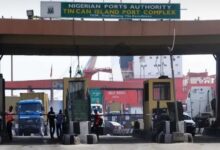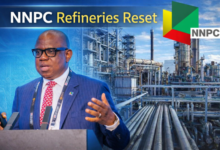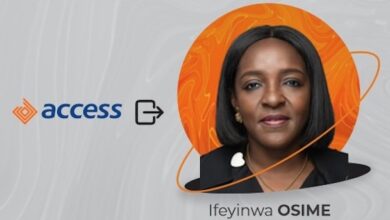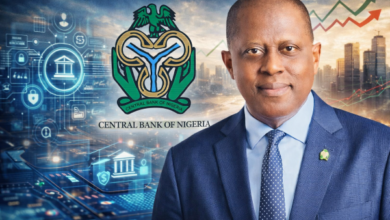The Challenges of getting Nigerian Identity

It would appear that Nigeria is turning out to be a country whose commitment to achieving even the most basic social policy and set goal is daily being brought to question, giving its citizens stress where comfort will have been more easily served. For a country acclaimed to be the giant of the second largest continent in the world, Nigeria has proven it is only great in its endowment with natural resources but definitely not in executing simple and proper developmental program towards the identification of its citizens.
National identification has become a festering sore for millions of citizens who have, for years, heeded government directive to obtain the national identification card by visiting the relevant offices across the country but are yet to receive the cards after due registration and capture of their biometric data. As if that is not bad enough, obtaining the Nigerian passport is no easy feat either. How can a government serve the people well when it does not have an accurate database and demographics of its citizens?
According to the World Bank, identity comes in two varieties: foundational, or a national identity; and functional, or a use-specific identity. A foundational identity explains “who you are,” and a functional identity explains “whether you are eligible for a specific service.” This is to say the main means of identification for Nigerians home is the National Identity Card and Nigerians in Diaspora only have their international passports to show.
Many Nigerians in diaspora have lamented the problems they are faced with when seeking to acquire/renew their international passports ditto here at home. Many have been subjected to harrowing experiences travelling long distances in foreign lands to update or collect their passports but are met with the worst kind of reception and service probably any countries embassy can offer. There are undue delays and sometimes outright disappointment of Nigerians who have spent money on travel, hotel and lost money to receive a basic service from Nigeria’s consular officers who usually act like they are doing them a favour and, in some instances have been accused of seeking gratification before the do their jobs.

That was why when a Nigerian in the UK, Jeffery Apkovweta Ewohime, in June took the law into his hands in London by destroying diplomatic properties, he was actually hailed by many aggrieved Nigerians. Ewohime, who was a London resident, had gone to the Nigerian High Commission in London to pick up his renewed passport and was denied on arrival because he was purportedly an hour behind schedule, his explanation about the distance he traveled to get there meant nothing to the consular officers who had according to sources unduly delayed the release of his vital documents severally. In obvious frustration, the young man vent his annoyance at the system by destroying seven cars parked in front the embassy’s premises with rods and stones. Ewohime’s bitter experience has been the standard staple served Nigerians in the Diaspora for a very long time. It is hoped that his lone violent protest will change things for the better forever.
Meanwhile, 80% of Nigerian passport applicants across the country have awful experiences at different Nigeria Immigration Service (NIS) offices. From sitting or queuing under the scorching sun to being exposed to other inclement elements and paying above the official amount, yet, applicants stay for months without acquiring their passports. This is always attributed to scarcity of booklets. It would seem the scarcity never ends.
The Comptroller-General of the Nigeria Immigration Service, Muhammed Babandede, however recently admitted there is a high rate of corruption in the NIS. This sincere submission which is by no means a shocker, confirms the suspicion of Nigerians over the years that racketeering is the real reason for the woes of Nigerians in obtaining efficient and prompt services from their own government.

One wonders if same can be said for the issuance of National Identity Cards. Citizens get their biometrics taken at different National Identity Management Commission, NIMC locations and even proxy locations. They are given a temporary slip but the permanent digital identity cards which have been touted to be an all-in-one card that will provide access to government and banking services remain elusive to millions of Nigerians, especially in the southern part of the country. No one has, thus far, come up with any explanation why this simple social service has become such a herculean task, putting the well-being of Nigerians at possible risk.
Earlier this month, the Director-General of NIMC, Mr. Aliyu said international passports and drivers’ licenses will not be issued to citizens without the national ID. How feasible is this when over 90% of the Nigerian population is not identified nationally? In November 2018, Mr. Aliyu Aziz had praised the commission for upping the number of people in its database through the National Identification Number (NIN) from the initial 7 million registered in 2015 to 33 million as at 2018. This was however, out of the over 190 million Nigerians.

India which has a population of over 1.3 billion has, as at July 2018, enrolled 1.22 billion people within the space of six years on Aadhar; a 12-digit unique identity number that can be obtained voluntarily by residents of India, based on their biometric and demographic data. India, due to this development has been able to recognize and implement strategic human development programmes, little wonder Nigeria overtook India as the country with the largest number of people in poverty recently since planning (if any) is done on a ‘voodoo’ data analytical basis.
How was India able to beat Nigeria in the identification scheme projects? India doubled up! The statutory authority and a government department responsible for identification in India, the Unique Identification Authority of India, UIDAI, did not necessarily wait for international standard conducive environments to headquarter its data, instead, it involved more than 13,000 post offices as enrolment centers.
There is a lot of work to be done in identifying the citizens of Nigeria. This means a lot of structural planning and realistic human development strategies are needed to be coined by the NIS and NIMC respectively. There is need for the government to identify its citizens by integrating the country’s digital identity systems. This can upgrade Nigeria’s status to a medium human development country as it ranks 33rd in the list of countries with low or no human development globally. The government should prioritize mobilizing sufficient resources to fund identification through fiscal budget, donors, or private sector partnerships and utilize the funds for its actual purpose.

It is not clear why the Nigerian international passport needs to be printed outside our shores. Our crave for importing everything we need, even those we can do ourselves has permeated virtually all MDAs. With the right leadership, we can print our passports ourselves and save ourselves a lot of money, time and pains. It is also curious how biometric cards that can be prepared within hours in banks and other service providers seem to be such a herculean task for the NIMC. This is a wake-up call for the federal government and its relevant agencies to do the needful and make the identification and travel documents and assets of Nigerians be made as easily available as it is in other civilized countries of the world. Nigerians deserve better!
Yetunde Adegoke










